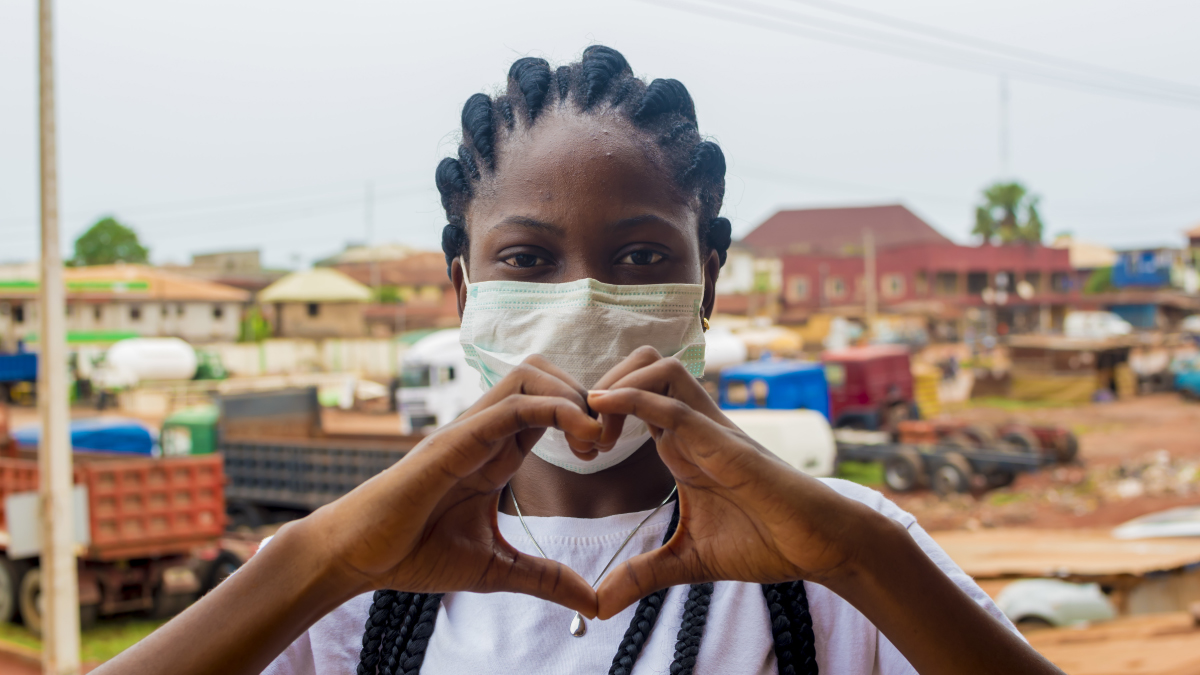Following his speech to the UN High Level Parliamentary Forum on 15 July, UNCTAD Secretary-General Mukhisa Kituyi answers questions on how lessons from the fight against to curb the pandemic could help speed up progress towards the Sustainable Development Goals.

©Courage
Q: How can much-needed resources for universal health care, social protections, and environmental preservation be mobilized and scaled up?
A: In light of the Covid-19 crisis, developed countries are reminding everyone that resources can be scaled up through fiscal stimulus and monetary creation. The G20 stimulus efforts hover around 7% of GDP on average. Developing countries however aren’t able to mobilize funds on this level. External financing is urgently needed. UNCTAD estimates that at least $2.5 trillion alone is needed to meet the onslaught of Covid-19 in developing countries: this should include $1 trillion in debt relief, $1 trillion in additional liquidity through new Special Drawing Rights at IMF, and $500 billion in a global health Marshall Plan.
Q: How can we transition toward a green economy to better reconcile economic progress with environmental sustainability?
A: It’s entirely a question of political will. The change in consumption patterns that some countries have been able to put in place in the face of the Covid crisis should give us courage that such a transition is indeed possible. Covid in this sense is a rehearsal for the kind of collective action needed globally to meet the existential challenge of environmental degradation due to climate change. But the mixed progress – say between the US and Europe, for example, shows we still have a long way to go. And yet while developing countries still will need dramatic external financing to meet the challenge, the impressive example of how countries like Vietnam for example have met the Covid epidemic stands as an encouragement that developing countries can play a leadership role in showing the world the kind of transitions we need to undertake.
Q: What would be the main elements of a Green New Deal, as some have proposed?
A: We need a Global Green New Deal combines environmental recovery, financial stability and economic justice through massive public investments in decarbonizing our energy, transport and food systems while guaranteeing jobs for displaced workers and supporting low carbon growth paths in developing countries – which is where the climate battle will be won or lost – through the transfer of appropriate technologies and sufficient financial resources.
Q: What measure of income and wealth redistribution is needed to make economies more sustainable and improve well-being for all?
A: One measure of inequality that we at UNCTAD feel is particularly important is the “labor share of income” globally – which has been declining dramatically over the last thirty years. If we are to get on a sustainable trajectory, we need to reverse that decline. Firms – especially small businesses – can help us try to reverse that statistic. Keep in mind that in most countries the majority share of exports is only thanks to less than 5% of firms. If we can open up global markets to a wider segment of society, we can make sure that prosperity is generated and shared more widely.
Q: How should finance be regulated nationally and globally so that it better serves the needs of the real economy?
A: Greater coordination is needed through existing international forums like g20. The case of illicit flows is illustrative. Current global efforts to handle this issue – focused primarily on taxation of high net worth individuals through the OECD – BEPS initiative are only partial and don’t get to the root problem of corporate multinationals engaging in transfer pricing. This activity for example in the commodities trade continues to rob African economies of a significant chunk of their resource rents. We need to make sure efforts to hamper IFFs are given teeth, for example, through more inclusive dialogue about these issues at the United Nations, rather than OECD, but also by ensuring that the rules agreed to by the rich countries aren’t just band-aids but address root causes.
Q: What reforms of the trade and investment regime are most urgently needed to fix some of the structural imbalances in the global economy?
A: Trade rulemaking is frankly stymied at the moment, and not likely to progress at multilateral level for some time. This is the moment for regional initiatives like AfCFTA to increase in importance and scope to give Africa for example a unified voice in trade matters. Similarly, the current challenges of multilateralism are also an opportunity for reform of the IIA regime to continue apace – and UNCTAD is playing its part with most new IIAs agreed following our model investment treaties. To ensure a sustainable future, these IIAs should also privilege Sustainability Conditions, such as the standard promoted by our Sustainable Stock Exchanges initiative, for example.



